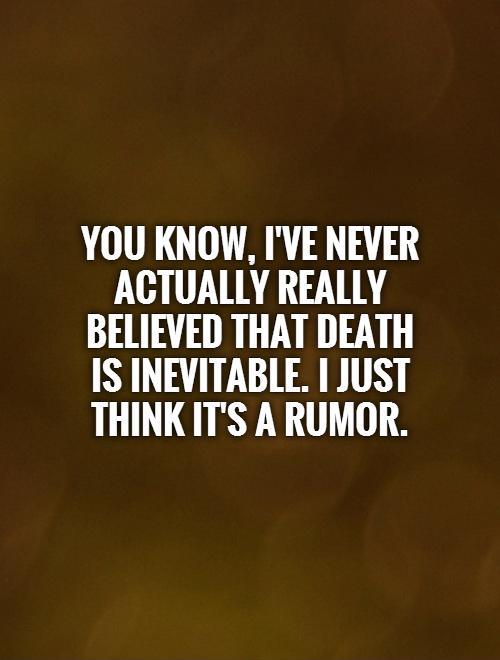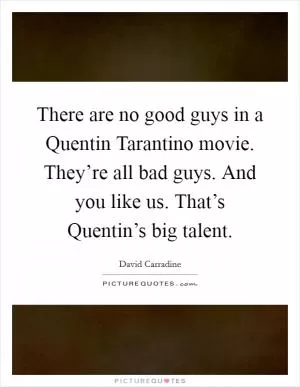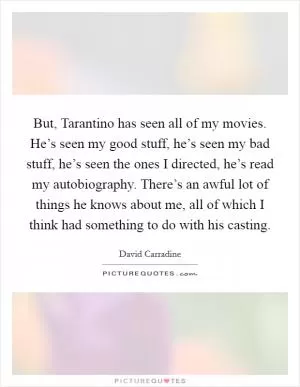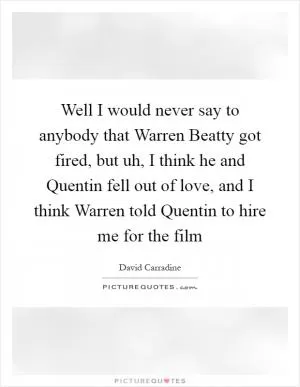You know, I've never actually really believed that death is inevitable. I just think it's a rumor

You know, I've never actually really believed that death is inevitable. I just think it's a rumor
David Carradine, a legendary actor known for his roles in iconic films such as "Kill Bill" and the television series "Kung Fu," once famously said, "You know, I've never actually really believed that death is inevitable. I just think it's a rumor." These words have resonated with many fans and followers of Carradine, sparking discussions and debates about the nature of mortality and the afterlife.Carradine's statement challenges the commonly held belief that death is an unavoidable and inevitable part of life. Instead, he suggests that death may be nothing more than a rumor, a myth perpetuated by society and culture. This perspective is both intriguing and thought-provoking, as it forces us to reconsider our own beliefs and assumptions about the nature of existence.
One possible interpretation of Carradine's words is that he viewed death as a transition rather than an end. In many spiritual and religious traditions, death is seen as a passage to another realm or state of being. By questioning the inevitability of death, Carradine may have been suggesting that there is more to life than meets the eye, and that our consciousness or soul may continue on in some form after the physical body ceases to exist.
Another interpretation of Carradine's statement is that he believed in the power of the mind to overcome physical limitations. By dismissing death as a rumor, he may have been expressing a belief in the ability of individuals to defy the odds and transcend the boundaries of mortality. This perspective is reminiscent of the teachings of Eastern philosophies such as Buddhism and Taoism, which emphasize the interconnectedness of all things and the impermanence of the physical world.
Overall, David Carradine's words about death being a rumor are a powerful reminder of the mysteries and uncertainties of life. Whether one agrees with his perspective or not, his statement encourages us to question our assumptions and beliefs about the nature of existence, and to consider the possibility that there may be more to life and death than we can ever fully comprehend.












 Friendship Quotes
Friendship Quotes Love Quotes
Love Quotes Life Quotes
Life Quotes Funny Quotes
Funny Quotes Motivational Quotes
Motivational Quotes Inspirational Quotes
Inspirational Quotes